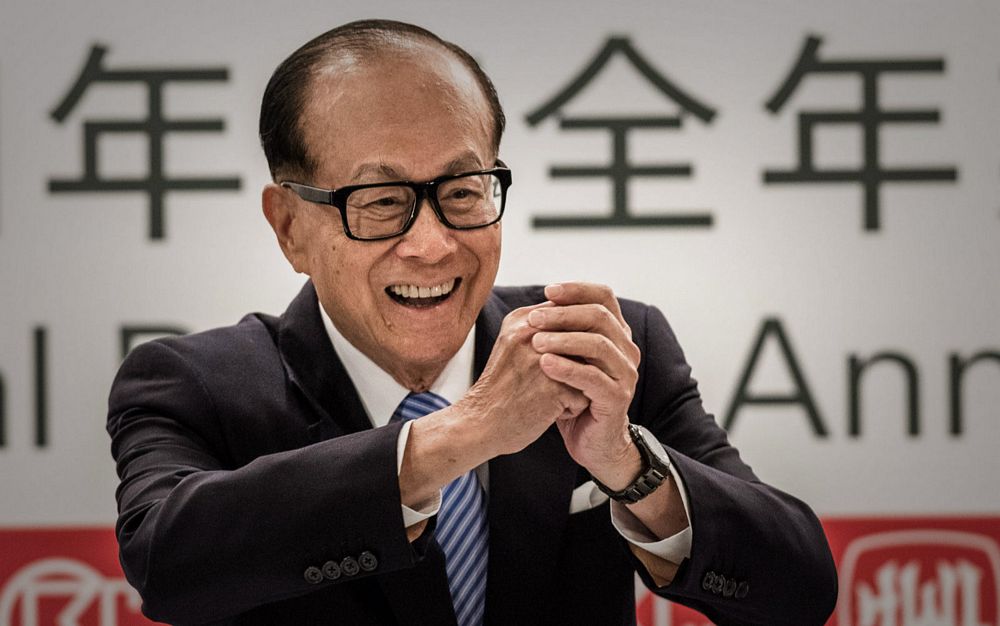
Li Ka-shing (born June 13, 1928 in Chaozhou, Guangdong province, China) is a Chinese entrepreneur and philanthropist. He is broadly respected as one of the most powerful businessmen in Asia. His companies span telecommunications, real estate, infrastructure, ports, retailing and manufacturing, energy, and technology, among other ventures. Known as “Mr. Money” and “Superman” in Hong Kong and Asia, Li Ka-shing exemplifies China’s remarkable rise from a dilapidated communist state to a free market behemoth. One year after Deng Xiaoping commenced his transformation process in 1978, Li purchased a British firm in Hong Kong named Hutchison Whampoa. Thenceforth, his ability to generate wealth globally exploded exponentially.
- “If you think, then you will be prepared. If you are prepared, then you will have no worries.”
- “After the pacific war began only my father and I were in Hong Kong. Soon he developed tuberculosis and went to a public hospital.”
- “You can believe in Fung Shui if you want, but ultimately people control their own fate. The most important thing is to improve yourself and give it your best. Then many things previously thought to be impossible will become possible.”
- “Democracy without law and order is no democracy. We have many investments in democratic countries.”
- “When I was young, I appeared humble but was inwardly very arrogant. Why was I arrogant? When my colleagues went to play, I went to study. We’d all had very little education. But they remained the same while I was becoming increasingly knowledgeable. We were doing similar work, but I was striving for improvement all the time. So when I went into business, I reminded myself that if I allowed myself to be arrogant, I’d fall one day. And so I named my company Cheung Kong.”
- “I may not be very talented but I can say that I’m like a small tree that’s grown in storms and among rocks. You go to the hills and see. To uproot a little plant that’s grown among the rocks takes quite a bit of effort.”
- “I was once an employee myself, so I know what employees want.”
- “In 1997—First job at age 12. First business started at age 22.: I’ve worked for 58 years.”
- “The first year, as I didn’t have much capital, I did everything by myself, including the first set of account books. I needed to go the Inland Revenue Department, and I asked my auditor if my accounts were correct, since I had no experience doing accounting. He said that it was complete and that I could take this to the government. I had no experience, but I learned by reading books on accounting. When you want to understand the balance sheet, you needed to know a little bit about accounting. I did so many things by myself, which kept my overhead low. I have made a profit every year since 1950. I have never lost a penny in any year.”
- “I also have some strengths. First, I have a thirst for knowledge. Second, I work hard, which can compensate for some of the weaknesses. Most importantly, I know what’s right from wrong.”
- “As for father, there’s one thing that’s remained comforting to me. One day before he died… he turned things around. Instead of saying something to me, he asked me if I had anything to say to him. Think about it and you’ll find that very sad. But with a lot of confidence, I talked to him and comforted him, saying ‘The whole of our family will have a good life.’ I promised myself that after saying those confident words to my father I must work doubly hard for a future.”
- “You must know and understand your business like the back of your hand. Otherwise, your company would be here today, gone tomorrow.”
- “I want to build a corporation that not only the Chinese are proud of, but that even foreigners are impressed with.”
- “To me, intellectuals… whether they are in education or in technology, industrialists, entrepreneurs and politicians, they’re all an integral part of society.”
- “A large US competitor of my buyer approached me and offered to pay me an extra 30 percent profit for the merchandise my buyer had ordered. He said that, with the extra profit, I could expand my factory. I said, ‘Look, I am also a businessman. I’ll make a deal with you. I will start another factory in nine months’ time, a much bigger one, and I will take your order. But this time I have already promised this buyer, and I will finish the order for him as I am his only supplier.”
- “If you allow your partners to benefit from the deal, they always come back and want to do business with you. There will never be a shortage of opportunity.”
- “In the competitive world today, you give more in order to get more. It’s like the Olympics. Look at the runners that come home first. The winner has won but he is just a bit faster than the first and second runners-up. If it’s a sprint it may be less than a second, just a tiny bit. You run a bit faster and win.”
- “You need to be interested in your business. If you are interested in your business, you are bound to do well.”
- “We believe that big family company: of ours, by the year 2000, will have increased its membership by one third locally and abroad.”
- “The Foundation has invested in a lot of companies with good returns and they are 100 percent for charity. One of the items is almost five times bigger than the PCCW investment.”
- “I do not get overly optimistic when the market is good, nor overly pessimistic when the market is down.”
- “The most challenging issue raised by globalization is how we can all get along with each other in our race against time. Corporate leaders must possess far-sighted vision, detailed action plans, macro-thinking, and a global outlook. To get ahead in the race, they must also possess a deep understanding of their own organization and that of their competitors.”
- “I’d never been particularly happy about getting honours. But after the Tribunal’s verdict the government gave me a CBE and I was particularly happy. My first thought was: on one hand I was censured for insider trading while on the other hand I was given a commendation by the government. Need one say more!”
- “Like living and doing business, there are ups and downs.”
- “There’s an interesting story about Richard Li. When he was a boy, a friend of mine gave him a big toy. Very big it was, big and very expensive a toy tank that boys love. Some Sunday morning we were going out to sea and Richard was very carefully wrapping up the toy with paper. I thought it strange because he was not the kind to sit quietly and work meticulously. So I asked him, ‘Richard, what are you doing? I’ve told you not to play with this toy?’ He said, ‘I’m not playing with; I’m giving it to the crew.’ He was not giving it to the captain; he was giving it to the assistant. I asked him why he was giving it to the assistant. He said that the week before the assistant had told him, ‘Richard, you’re really fortunate with a father who loves you, with such a wealthy family and with so many toys to play with. It’ll soon be my son’s birthday and I can’t afford to buy him a toy.’ When Richard had finished, I was silent for a while and then only said, ‘Wrap up the present nicely.’ Though I didn’t encourage him to do what he did, I was very pleased about what my son was doing.”
- “A good reputation for yourself and your company is an invaluable asset not reflected in the balance sheets.”
- “Through the years, property is of course the most profitable business. But no line of business remains forever prosperous. At a certain point, there will be market saturation or the government will have new policies. I’d always known this.”
- “At six something I play golf… Play for an hour and a half. This period of time belongs to me alone. The rest of the time, I deal with business and work and time spent like this is not necessarily my own. This hour and a half is all mine.”
- “It’s entrepreneurs who create and who, with marketing skills, make a nation wealthy. Their contribution to a nation is definitely not less than that of scholars, farmers and workers.”
- “If I hadn’t been smart and bought those books it would have been better. I was only 13 then and got scared to death after reading the books. I had all the symptoms.”
- “The hills have remained the same, as has the environment. One hundred… one thousand years from now, they will remain the same but the people now will not be there…”
- “On working hard at 70 years of age: First, it’s a challenge. Second, I’m in charge of several listed companies and want to maximize profit for my shareholders. When you are rich, you suddenly think of doing meaningful things in life, things you can do with money. If you try to make money only when you need it, it’s very difficult.”
- “I often think that in all these years the Chinese people have only ventured into south-east Asia and relatively few have gone to the western countries in a big way. I believe that what I’m doing can open up more investment channels for Hong Kong and China.”
- “I am very prudent financially because of those hard times I went through. I spent nothing. I had a haircut every three months. I shaved my head like a monk.”
- “China in the past several hundred years… since Kangxi… has been weak because not enough respect has been given to industry and trade.”
- “When times are tough you need to ask yourself if you’re up to it. During tough times I’ve always thought I’m up to it.”
- “Some morning I was trying to get my car key from my pocket and accidentally dropped a two dollar coin. It rolled underneath the car, if the car was moved, the coin would fall into the drain. So I squatted down to try to get the coin back, not wanting to lose it. The guard saw me doing that came up to ask me, ‘Mr Li, what’s up?’. I said I’d dropped a coin. He then gave me some help. The coin was picked up, I got two dollars back and gave him one hundred dollars. Why did I do that? If I hadn’t picked up the coin, when the car moved the coin would drop into the drain and would be lost forever. But I got it back and gave the guard one hundred dollars, which would not be lost because he would make use of it. In a word, money may be spent but never squandered.”
- “Broaden your vision, and maintain stability while advancing forward. That is my philosophy.”
- “If you don’t have a big heart, you will not succeed.”
- “I rely on a system. Important issues have to be approved by Hong Kong. So things have worked fine for years. We rely on a system, checks and balances and regular meetings.”
- “Fifty years ago, I named my company Cheung Kong Holdings after the Yangtze River that flows through China, a great river that aggregates countless streams and tributaries. These days I think about where this ‘river’ should flow.”
.jpg) “In 1978, I returned to the mainland China: for the first time after liberation.”
“In 1978, I returned to the mainland China: for the first time after liberation.”- “What am I after? As a Hong Kong citizen, I do things for myself as well as for Hong Kong. I have several principles. One: a liberal economy that allows free movement of assets and remittances that do not require official approval. Two: freedom of personal movement and I’m very insistent on this. Three: permanent resident status… and I argued about this point. What did I argue for? As long as you’ve lived a full seven years in Hong Kong, regardless of what happens afterwards… you may have emigrated and returned, you are considered the same as all Hong Kong residents and keep your permanent resident status.”
- “A company is built on the efforts of many individuals, and not just on one person.”
- “I was in rather good shape when the 70’s began and, observing foreign owned establishments. I found they owned very few shares but controlled great assets. If I could take over these companies, I’d be able to get their assets, and their people would also be useful as I had the idea of starting an international company. If my company had gone public without me having an idea, it wouldn’t have reached its size today.”
- “It doesn’t matter how strong or capable you are; if you don’t have a big heart, you will not succeed.”
- “I wasn’t lucky. I worked hard to achieve the goals I set for myself.”
- “I have worked hard to establish my business over the past decades, and now we are seeing the fruits of our labor. Not only is my group reaping the benefits, I am also able to make greater contributions to worthy causes.”
- “I would like to do more meaningful deeds. I don’t care how much money or how much energy it takes. I have very simple needs. With the blessings that I have received, I have no need for more wealth. But if I can do more for mankind, for our people, and for our country, I would be more than happy to do so.”
- “Had I wanted to live in luxury, I could definitely have done so in 1960.”
- “I had a clear intention of taking over one of these companies with underperforming assets and developing it into a multinational corporation.”
- “Children of wealthy families grow up in a greenhouse. No matter it is a big tree or any plant, their roots are not strong. If I spoil them, they’ll have a hard life ahead. When they get a knock or run into hard times, they’ll be helpless.”
- “My childhood days were very tough, tough that I had no one to talk to. I couldn’t have written and told my mother, could I? Absolutely not. Whatever went wrong in my life, I couldn’t tell my mother.”
- “Despite facing this big economic crisis. I’ve found that at least two companies larger than ours to work with me on a long term investment project in Hong Kong.”
- “If you are not honest and sincere, people will leave you sooner or later.”
- “My father had tuberculosis, which was as devastating a disease as cancer is today. If you were rich and could afford proper care, you might have a better chance. We had no choice.”
- “Today I can be frank. When I started my business, I almost certainly did not rely on luck. I relied on work, hard work and ability to make money.”
- “Once you’re in sales, you will also learn what sells and what not. Use the sensitivity of detecting market sentiments as a platform for running your business and in the identification of product winners in the future.”
- “On ‘How much of your success is due to good fortune?’: I cannot deny it’s the times that create heroes.”
- “I find solace in my heart. I think I’ve done many things that have required money, time and care for the good of other people and these things make me feel honoured and proud.”
- “During my father’s time, our family finances were deteriorating. My uncles did not make any contribution to the family after they came back from Tokyo. I always had a fighting heart. I only had a small amount of capital when I started my own business. That’s why I am always conservative. I never forget to maintain stability while advancing, and I never forget to advance while maintaining stability. Stability and advancement must always be in balance.”
- “The first year, I didn’t have much capital so I did everything myself. I had to keep my overhead low by learning everything about running a business, from accounting to fixing the gears of my equipment. I really started from scratch.”
- “In 1956, when I was in the plastics business, my first order was for a three to six month production. I calculated a profit of 20 percent. My competitors were making 100 percent profit.”
- “What his father Yun-jing Li told him on his deathbed: You must have the strength of character. Then you can rise as tall as the sky.”
- “Regardless of when I go to bed, I get up at the same time every morning. At 5:59am I get up when the alarm clock rings because I want to listen to the news on the radio. This is how a day begins.”
- “On a customer cancelling an order: I said, there were plenty of buyers for the goods and I didn’t need him to compensate me for my losses. I also said that if another business opportunity arose, we could build an even better relationship. I’d forgotten the whole thing when something strange happened one day. I’d just started doing plastic flowers… about 1956-57 it was. Unexpectedly a foreigner came looking for me. He said a certain company had introduced him. That company had said that mine was Hong Kong’s top plastic flowers factory, a factory commanding a huge area. I was dumbfounded because my factory was not huge it was in fact small. But later his American client ordered a lot of things from me. Placing at one time all the orders for six months. I later discovered the man of that trading company knew this foreigner. The foreigner was a senior executive of another trading company. He had told the foreigner about me, saying that I was completely trustworthy to deal with. He had said all the good things about me. I believe everything good that could have been said had been said. The moral of this is: something that seems to be a loss can often turn out to be a gain.”
- “When his children were very small: I took them to squatters’ areas and took them on tram and bus rides although I already had a chauffeur and a car.”
- ” Spiritual peace and comfort… are very important to me. I only have a desire to do more meaningful deeds.”
- “On Hasbro asking ‘What was that?’ when riots were taking place in the city: It was a bomb. But we are still working, so you should give us a medal instead of rushing us for the order.”
- “As people seek to improve their living environment, there will be continuous demand for residential property. Investment in real estate market should have reasonable prospects in the long run.”
- “I took jobs, not matter how lowly they were. At any rate what could a 14-15 year old boy do? But I did my best at work and at increasing my knowledge.”
- “All my senior staff know I demand efficiency. Before a meeting, the other side know what’s going on and I know what they’ve done. Everybody is well prepared and no time should be wasted.”
- “I loathe the social scene; I don’t like cultivating relationships, and I’m too emotional. These are all weaknesses in doing business.”
- “The future may be made up of many factors but where it truly lies is in the hearts and minds of men. Your dedication should not be confined for your own gain, but unleashes your passion for our beloved country as well as for the integrity and humanity of mankind.”
- “We must get on well as partners.”
- “My thinking in 1979 was buying this foreign company gave me the advantage of paying one dollar for two to three dollars’ worth, even more profitable than investing in property.”
- “Your life is meaningful if you can honestly say that you have done your best to do some good.”
- “The most important enjoyment for me is to work hard and to make more profit.”
- “Before the Asian financial crisis stuck, the signs of a bubble economy were already glaring.”
- “It’s very important to devote yourself to work.”
- “You have to prepare for the worst-case scenario. If nobody buys your property, can you support your debt? For 56 years, especially after we went public, Cheung Kong has never had any financial problems.”
- “This was actually a more difficult job, but the prospects were better. I was confident about the bright prospects of the plastics industry and I told my boss that I would like to start my own business. I already knew a lot about the plastics business, including the technology, the market and sales.”
- “If you are good to people, they will be good to you.”
.jpg) “Successful managers should also have a keen eye for talent. They not only select people who are smarter than themselves, but also avoid picking corporate superstars whose reputation precedes them.”
“Successful managers should also have a keen eye for talent. They not only select people who are smarter than themselves, but also avoid picking corporate superstars whose reputation precedes them.”- “So soon after my company went public, I began looking for investment opportunities overseas.”
- “When Victor and Richard were still students, I brought them to one of our meetings. They just sat there. My purpose was not to teach them to do business. It was to let them know doing business was not that simple and that it took a lot of work, meetings and the help of many people to get a job done.”
- “During the time China and Britain were having talks in 1982 and 1983, the stock market and the property market were in the doldrums. I remember using only one to two hundred million dollars to get four berths at Container Terminal 6. Later Terminal 7 cost me over four billion. My decision was to press ahead with expansion in the worst of times. That really was the cornerstone of HIT.”
- “Businessmen must move with the times…the correlation between knowledge and business as the key to success is closer than ever.”
- “If we rush into things and get emotional, usually it will lead to unexpected mistakes.”
- “To be a successful manager, attitude and ability are equally important ingredients. A leader inspires others to greatness. A boss dominates his subordinates and makes them feel small.”
- “I remember in 1938 I’d just begun high school when Japanese planes bombed Chiuchow. A year afterwards our family moved to Hong Kong.”
- “In a small business – a family business you’ve got to do everything personally. But when the company is big, you need to give your staff a sense of belonging and make them feel at ease. That’s vital.”
- “In 1997 on the university he founded: Education is different from business; I will never be discouraged. In business, I can bring to an end something that is dissatisfying and has no future, but I will not do this to Shantou University. Friends and colleagues said to me, ‘Mr Li, for a while, you were the only one caring about the university. You put in the most time and the most care; you were the most anxious.’ By way of encouraging him, I said, ‘If the university were destroyed by a bomb tomorrow or demolished by an accident. I would have it rebuilt.'”
- “The Yangtze River doesn’t pick and choose its tributaries. Waters from small streams and springs are just pulled over. Otherwise there wouldn’t be any Yangtze, would there?”
- “His promise to his dying father at age 13: The whole of our family will have a good life.”
- “The art of good management lies in the capacity to accept change, and the ability to meld new and traditional thinking.”
- “In Chinese we have a saying: If you want to be successful, whatever your business or position, you need to accept different opinions and different people.”
- “I think education is the most important thing to a nation. Without good education, whatever equipment or plans you have mean nothing.”
- “1967 gave me a chance to make a lot of money. But it wasn’t an astronomical figure… no, it wasn’t.”
- “Investing in Husky Oil: What I learnt from the Husky experience was: management has to be perfect! The management was really a bit slack at the beginning.”
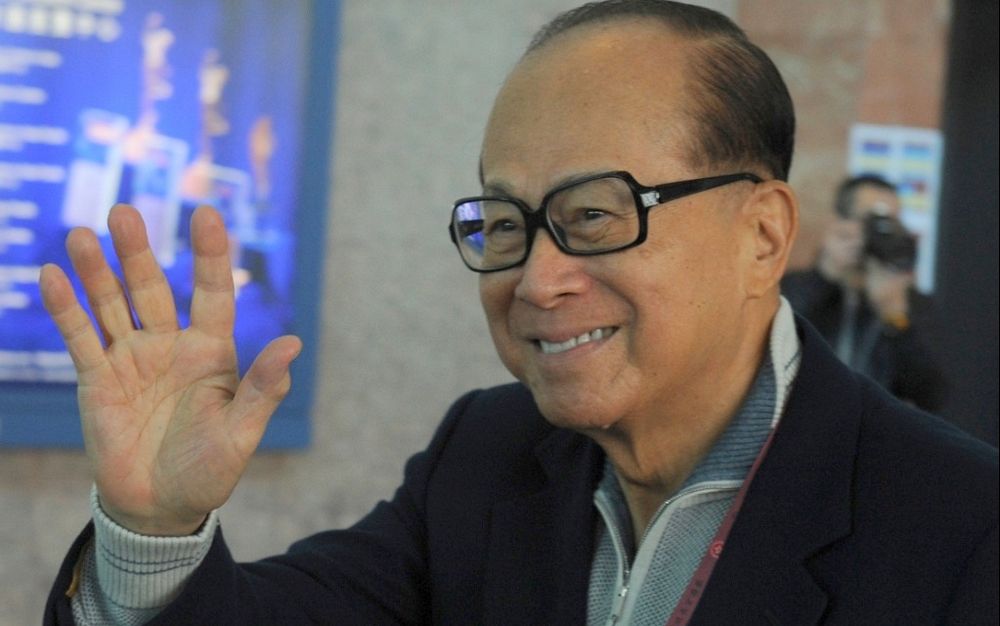
- “Magazines like using my pictures on their overs hoping to increase circulation. All this to me is hard to bear… a form of pressure.”
- “Money may be spent but never squandered.”
- “The character ‘Tzar’ was chosen in accordance with our family decree.”
- “Before, I used 99% of our time together to teach them His children: principles of life. Now we talk about business sometimes… one third of the time for business, and the other two thirds still for principles of life.”
- “The media neglected one thing. Why did Hong Kong Bank sell their shares to me? Their biggest consideration was whoever bought the shares should be able to manage and lead the company towards better development.”
- “Life is short.”
- “I was very careful. I had no debt (actually, I was not qualified for a bank loan at the time), but I knew my company’s finances like the back of my hand, and I could answer any question that anybody asked.”
- “On philanthropy: I will continue to do the same and more, not out of a sense of duty but because it is a maxim by which I choose to live my life.”
- “When you think that life is but a short journey, you’ll hope to make the most of the time when you’re still able to work, to sow good seeds in the world. This is worth doing.”
- “At the start of the 90’s my decision was that we had to develop overseas; otherwise the future of the company would be limited, because our business had run into considerable snags.”
- “Educated people are vital.”
- “A company needs a good infrastructure, good organization, and good people. If everyone works in concert, then you can succeed.”
- “War broke out when I was ten, I was constantly on the move. First to make a living and later for my career. In this life of mine, I think if I make up for what I lost in my youth… like education and medical health if I can make some contribution in such areas as long as I’m up to it… I would like to do more.”
- “The first year, as I didn’t have much capital, I did everything myself, which kept my overhead low.”
- “My father died of tuberculosis when we could not afford medical care. I know the feeling of helplessness and loneliness.”
- “Set your goals high; make friends with different kinds of people; enjoy simple pleasures. Stand on high ground; sit on level ground; walk on expansive ground.”
- “In 1958: I firmly believed that property would be one of the best businesses in the future. I could see that the supply of land in Hong Kong was limited, whereas population was unlimited.”
- “First of all, I am an optimist. When you study hard and work hard, your knowledge grows, and it gives you confidence. The more you know, the more confidence you gain. When I was 10 years old, I lost my schooling, but I still had plenty of hope to return to school.”
- “The most important thing is to build the best reputation.”
- “Social progress requires courage, hard work and perseverance; more importantly, they know that a fair and equitable society is built on trust and integrity.”
- “I lived and breathed plastic flowers for ten years, and all day long all I could think of was how to make them look more life-like and how to be more creative.”
- “My life differs from the lives of most people in that I didn’t have a childhood.”
- “There are things that might bring in a lot of money but I wouldn’t do. A person has to be able to look beyond money. As long as we can keep our dignity, life becomes more meaningful.”
- “I was facing life for the first time. I was 12 years old, but I felt like a 20 year old. I knew then what life was.”
.jpg) “I was already keeping an eye on the political developments within china, and I also had a firm grasp on economics, industry, management and the latest development and productions of the plastics industry. Not many people in Hong Kong at that time were aware of the potential. It was still quite new.”
“I was already keeping an eye on the political developments within china, and I also had a firm grasp on economics, industry, management and the latest development and productions of the plastics industry. Not many people in Hong Kong at that time were aware of the potential. It was still quite new.”- “Our work is certainly challenging, but we are not under any pressure except for the pressure to outperform.”
- “On being up to it: Because I’m hard working, frugal, steadfast, willing to learn and to build a credible name.”
- “Knowledge changes fate.”
- “I wake up every day just before 6:00 am and exercise and play golf for an hour and a half. I insist on reading before I go to bed at night. I am still energetic during the day. Your energy comes from being interested in your work.”
- “Times were really tough in the beginning. When I started my business in 1950, I only had HK$50,000, so I was in a tight spot financially. I already had some work experience, but I had an advantage in competing with other companies. I was willing to learn the latest industry trends.”
- “In 1997: I will not because of Oriental Plaza, lose interest or faith in investing in China.”
- “The fruit that you eat will never taste as beautiful as the fruit that I ate during the turmoil of war. You will never cherish it as much as I do.”
- “On publicly being censured for ‘insider trading.’: Even now I still think that was a farce. First, none of the directors did any personal trading of the stocks in question. I made a statement in the press and I won’t be breaking any law by repeating it now. What happened was that I signed a transaction agreement with Mr Wang Guang-ying. He was buying our property and that should be good news. Our colleagues responsible for investment had sold the stocks two or three days before. Cancellation of a deal was bad news, but he had chosen to buy the stocks before the cancellation. You see the point? If one wants to make money, one should work the other way round. How could that be considered insider trading?”
- “In 1967, I was as emotionally challenged as others were. Wow… the situation… it was threatening. Then in the night I had it all thought out, down to a simple theory. If China wanted to take back Hong Kong it didn’t have to resort to such measures. So I went against market sentiments and used my idle cash to buy a lot of property.”
- “Despite my achievements, I can still remember poverty. I told my children and grandchildren that ‘The fruit that you eat will never taste as beautiful as the fruit that I ate during the turmoil of war. You will never cherish it as much as I do.'”
- “The four days when Hong Kong stopped trading, I wasn’t in Hong Kong, I was in Canada.”
- “Reputation is the key to success. You have to be loyal to your customers.”
- “I needed to save every penny…I needed to be strong, and needed to find some way to secure a future. That’s why I am always conservative. I never forget to maintain stability while advancing, and I never forget to advance while maintaining stability.”
- “The more you know, the more prepared you will be when opportunity knocks. If you are lazy and wile your time away, you would not know how to take advantage of opportunities even if they stared you in the face.”
- “On New Year’s Day, the boss announced that the bonus that year would be based on sales. At the end of the year, my sales figure was seven times higher than the second best. If they paid my bonus based on my sales, my bonus would have been higher than the general manager’s. The other salesmen were already jealous. So I said to my boss, “Just pay me the same as the second best salesman; it would make everyone happy.” As a result, I became a manager when I was 17 going on 18.”
- “Knowledge is not a guarantee of a life of riches but it does open the door to more opportunities. And recognizing more opportunities is really the best that you can expect.”
- “Hong Kong people are realistic, diligent, flexible and innovative. If we can, like in the 50’s, 60’s and 70’s, go about our business with the same fighting spirit, I have great faith in Hong Kong people. After all, through thick and thin this is our home.”
- “A liberal society has to be founded not only on law and order but also on: a prosperous economy.”
- “I bought secondhand books whenever I had spare money and absorbed them before trading them in for more books. Even today I read before going to bed every night.”
- “Short economic lulls don’t worry me. My only concern now is there’ve been changes in social harmony, policy and structure.”
- “Frankly I was very hurt, absolutely hurt. It caused great repercussions in our company. At the peak of our heated debate about moving base, I said something after which no one dared speak anymore. I said, ‘If it is moving base you want, please tell me whether you are able to move Li Ka-shing, this chairman. If you are unable to do it, say no more about moving.'”
- “The burden of poverty and this bitter taste of helplessness and isolation sort of branded on my heart forever the questions that still drive me. Is it possible to reshape one’s destiny? Is it possible to minimize challenges through lessening complexities? And is it possible to enhance chances for success through meticulous planning?”
- “We cannot afford to have instability in Hong Kong.”
- “While other people learned, I grabbed… grabbed knowledge.”
- “We in Hong Kong were apprehensive… fearing that people would say our terminals were becoming too dominant, there was this constant apprehension. Although the Government did not openly say we were getting too big, we could feel it… feel there were people saying we were getting too big. In those circumstances, in order to maximize returns for our shareholders, overseas development was the only choice.”
- “A good system is of great importance.”
- “After seventeen, I knew I’d have a good chance of starting my own business, because I knew I’d been right in my beliefs.”
- “In so many years, the site of Shantou University changed from desolate land to a campus of several million square feet. I believe this will go on and will not disappear with time. Equally meaningful things, big or small, I will never stop doing.”
- “I should make more money and use it when opportunity arises. Only making money like this has any meaning.”
- “The potential is endless and inexhaustible.”
- “Simply speaking, you are the commander in chief, the head of a group of armies. You can never be better with a machine gun than a machine gunner or better than a gunner at operating a cannon. But as commander, you don’t do these things. Your job is mapping out strategy. So good organization is very important.”
- “Anytime I say ‘yes’ to someone, it is a contract.”
- “When the buyer came to Hong Kong he humoured me and said that he thought I would be bankrupt by now. He said, ‘Why didn’t you take the extra profit from my competitor?’ I said, ‘I already promised you.’ He said, ‘but at least you could have told me and requested a price increase.’ I said, ‘Next time, I will increase the price.'”
- “Some people are learned and I should learn from them…”
- “Husky has a staff of 1500. Two of the people I’ve place here have worked for me for over 20 years and one had been with me for over 10 years. The people originally working here will gradually become our own people.”
- “Why did the Yangtze become a long river? It’s because it can accept smaller rivers and become big.”
- “We are approaching a new age of synthesis. Knowledge cannot be merely a degree or a skill… it demands a broader vision, capabilities in critical thinking and logical deduction without which we cannot have constructive progress.”
- “On calling his foundation ‘Third Child’: I was tossing and turning one night. The next day, when I was having dinner with my family, I told them that I have a third child. They fell silent. They were shocked and thought that I had finally lost it. Actually it was an epiphany. If I had a third child, wouldn’t I want to build a solid foundation for his future? By treating my private foundation as my third son, I could allocate more assets to it and enable it to benefit more people.”
- “Very naturally anybody in the world can become one of your nucleus group.”
- “I made a lot of money in 1957 and 1958 and was very happy. But does having money mean real happiness? I was beginning to wonder and felt the answer was ‘not necessarily’. Later I had the conundrum thought out. I should make more money and use it when opportunity arises. Only making money like this has any meaning.”
- “America owes 80% of it’s economic growth today to new inventions.”
.jpg) “On being asked in 2002 ‘Do you still wear a $50 Citizen or Seiko watch? Is it always set eight minutes fast?… Do you still live in the same house you have lived in for 20 years?’: Except for the fact that my watch clocks a full 20 minutes ahead, your facts are basically correct. My standard of living has remained at about the same level as when my business first began to take off in 1957, perhaps even more modest.”
“On being asked in 2002 ‘Do you still wear a $50 Citizen or Seiko watch? Is it always set eight minutes fast?… Do you still live in the same house you have lived in for 20 years?’: Except for the fact that my watch clocks a full 20 minutes ahead, your facts are basically correct. My standard of living has remained at about the same level as when my business first began to take off in 1957, perhaps even more modest.”- “I will never be satisfied, like the Olympics.”
- “But how many times have you heard that Cheung Kong’s finances were in trouble over the last fifty years? Never; the reason is, we are always prepared for the worst. That is my policy.”
- “In the constantly changing world today, you should strive for knowledge innovation and strength and, with a sound foundation, seek advancement.”
- “The secret of management is simply identifying and making use of talent. But you must in principle make them feel they belong and like you first.”
- “The more you know, the more confidence you gain.”
- “During the day I worked in the office to bring in business to sell. After office hours I worked in the factory to see that the orders were taken care of and we’d give good delivery.”
- “On Hutchison Whampoa: I didn’t care how things might look from the outside. I wanted genuine control.”
- “I bought land with my own cash. If somebody invites me to be a partner, and I take only 15% to 20% as a minority stakeholder, they would perhaps get a loan from the bank. But I had no personal debt. At that time, when Cheung Kong went public in 1972, the company had almost no debt. Even if the company had to borrow from the bank, we would have alternative arrangements, such as buying government bonds equivalent to the bank loan amount, to ensure that we can readily cash out at anytime. The interest income would continue to accumulate, while interest expense on the loan would be repaid monthly. So you see; our corporate finance is very conservative and prudent.”
- “Because he had TB (Tuberculosis), I went to get some old books… books about treating TB and taking care of TB patients.”
- “Doing business may be tough, but I am willing to learn, to innovate, and to work hard, which are the reasons why my business can continue to grow. We focus on our core competencies while looking for new areas for expansion. New businesses sometimes fail, and sometimes succeed. But the ones that succeed can be very profitable. This has been my experience. Setbacks and difficulties are ways to build character.”
- “In the past years, when the stock market, the property market and the general economy were in the doldrums, we increased our investments. One of the reasons was that we are always prepared. We don’t get carried away when times are good and don’t get too pessimistic when times are bad.”
- “It takes a cool head to do business, as does playing golf. Even if you’ve teed off badly, as long as you keep your composure, stick to your plan, you may not lose the hole.”
- “As a leader, one should spend more time than others planning for the future.”
- “Sound economic fundamentals coupled with a number of positive factors have partially offset the psychological impact of rising interest rates in Hong Kong.”
- “Well, I have my own definition for the term “retirement”. Life was extremely hard when I was young; today working without the burden of pressure to me is the same as the luxury of retirement. These few years, our Group has embarked on some new projects and is in exciting times. We plan all our projects meticulously. Our work is certainly challenging, but we are not under any pressure except for the pressure to outperform.”
- “Be prepared for rainy days. No matter how well you’re doing, you’ve got to be prepared.”
- “People were working eight hours a day, but I worked sixteen hours… It was really full, non-stop work.”
- “Businesspeople in general shouldn’t have an overly narrow view of their industry, rather they: need a 360-degree perspective and to look at everything from all possible angles.”
- “Vision is perhaps our greatest strength… it has kept us alive to the power and continuity of thought through the centuries, it makes us peer into the future and lends shape to the unknown.”
- “Some people only know how to complain, hoping you will help to solve their problems. Frankly, if they are fully prepared, they make the best suggestions.”
- “I long for a frugal life. In general, frugal people have more time. This attitude has not affected my business, but has actually helped me to achieve the best results and returns for my shareholders.”
- “It is the man who goes to the table to ask and squeeze for the last nickel who is never happy. Do you know why? It is because that person leaves the table, typically getting the nickel, but then hates himself for not asking for two nickels. As a result, he is never happy.”
- “You give more in order to get more.”
- “Buying land is not like buying antique. It is not the only deal available.”
- “In 1997: We now have eighty container berths in the world, which last year meant an 11% control of the international market. All being well, in 2000 or 2001, the percentage will go up to 15%.”
- “Our principal policy is never to take financial risk.”
- “You can’t succeed on charisma alone.”
- “All my senior staff get along very well with me. That’s gratifying.”
- “I personally hope to lessen my business workload in the coming years, but I will not be idle.”
- “We are living in a dynamic age with multiple ideas and beliefs of correctness; this world is not deterministic and not still.”
- “I have set boundaries for myself. There are certain business I won’t get into…This is my principle and I will stick to it.”
- “If you have done your best to make meaningful contributions, when it is time for you to go, all you will feel is a little tired, just like when the sun sets you need to take a rest. I just hope that I lead a full life.”
- “Information and communications technology unlocks the value of time, allowing and enabling multi-tasking, multi-channels, multi-this and multi-that.”
- “I remember reading a treatise by Sima Qian. He says to trade is to fill the needs of the people.”
- “Without the money for new books I bought old ones, textbooks used by teachers for high school. I only had a dictionary and the books and I studied on my own. When I was done with the books, I exchanged them for more old books. In the circumstances then, I was working for a future.”
- “In the Han Dynasty, Xiang Yu was very brave and won many battles, but in the end he failed. Treat people with sincerity and build a good organization. Otherwise, it doesn’t matter how famous or how capable you are.”
- “From the business point of view, if one had invested in China in the 80’s, one would have had better conditions and returns than today. Why didn’t I invest then? I was afraid people might say Li had come to exploit. That wouldn’t have been worth it.”
- “I have always enjoyed a simple lifestyle. I have very modest needs in terms of material comfort.”
- “Though a universal formula for success is difficult to come by, caution signs for failure are posted everywhere. Establishing a structure that serves to minimize failure will prove to be a shortcut to success.”
- “I often think back on the past few decades. Almost every time Hong Kong was in a lull and people had lost confidence, I made investments, large investments; particularly from 1983 to 85, when public confidence was down and the economy was I bad shape. I made heavy investment, totalling over 10 billion dollars. The government, past or present has never given me one iota of privilege.”
- “Since many seem to be interested and concerned, I am happy to report that I am in good shape, and can rise to the opportunities and challenges of our times, and I embrace each project with enthusiasm. I also spend a lot of my time on education and medical care initiatives. This is a passion that I will never grow tired of. In fact, I consider it a lifelong endeavor.”
Recommended Reading
- ‘Li Ka-shing: Hong Kong’s Elusive Billionaire’ by Anthony B. Chan
- ‘Li Ka-shing: No Accidental Success’ by Li Yongning
- ‘Asian Godfathers: Money and Power in Hong Kong and Southeast Asia’ by Joe Studwell
- ‘The New Elite: Inside the Minds of the Truly Wealthy’ by Jim Taylor, Doug Harrison

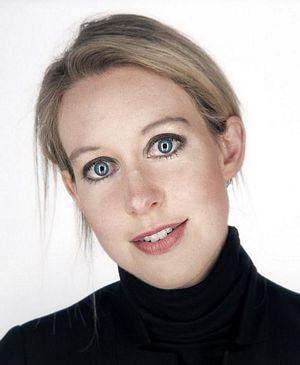 Two years ago, the blood-testing startup
Two years ago, the blood-testing startup 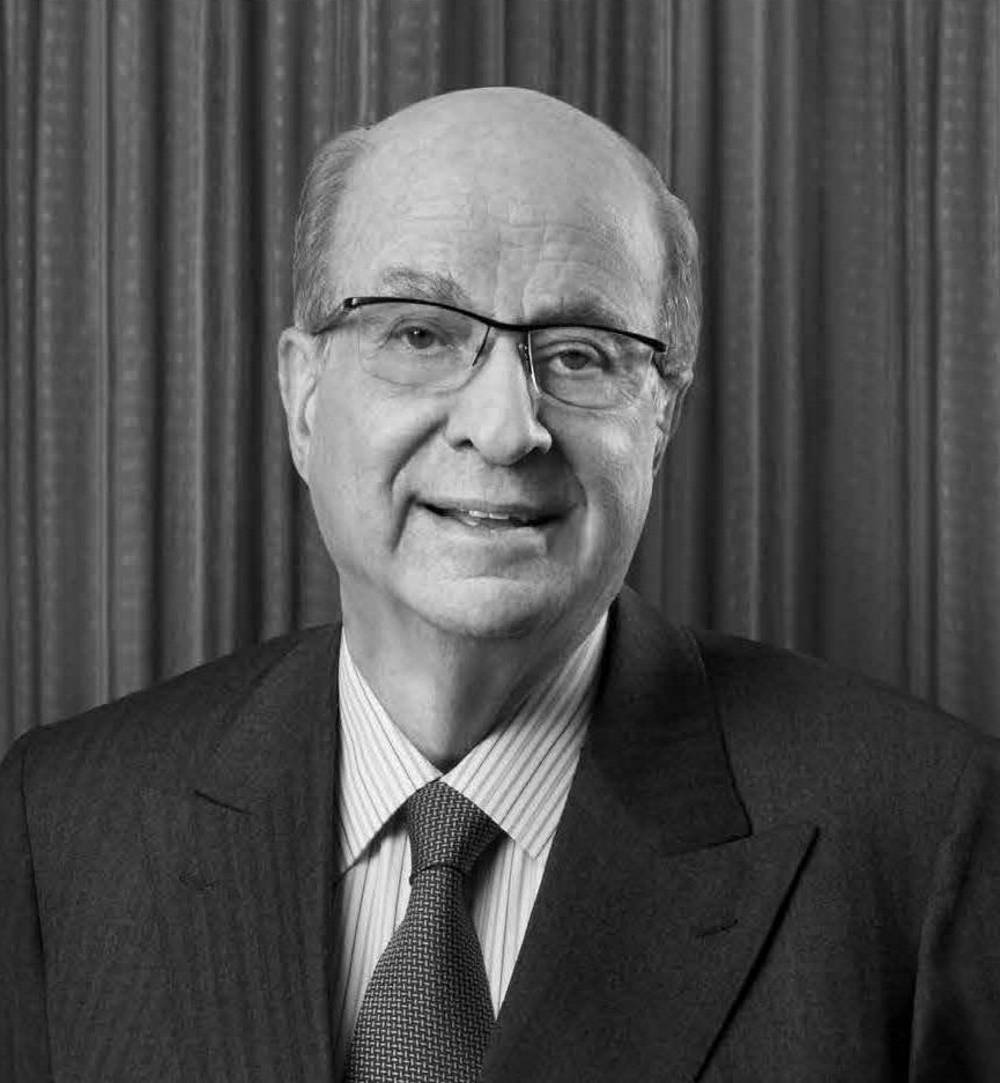
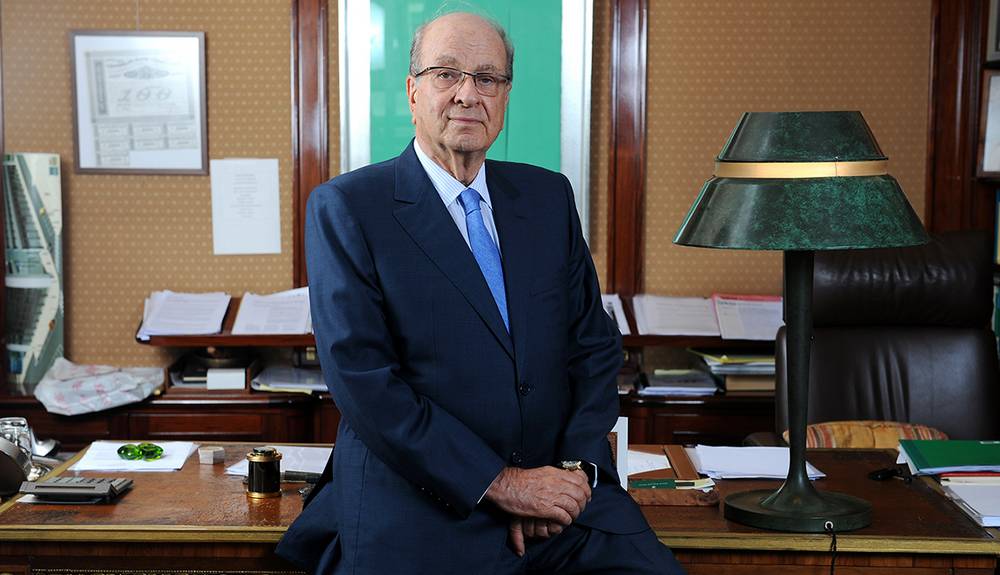
.jpg)
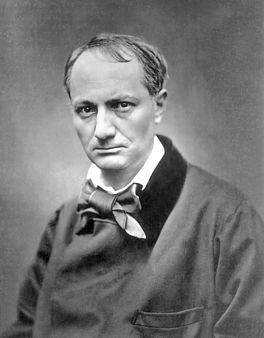 For much of the history of humanity, the
For much of the history of humanity, the 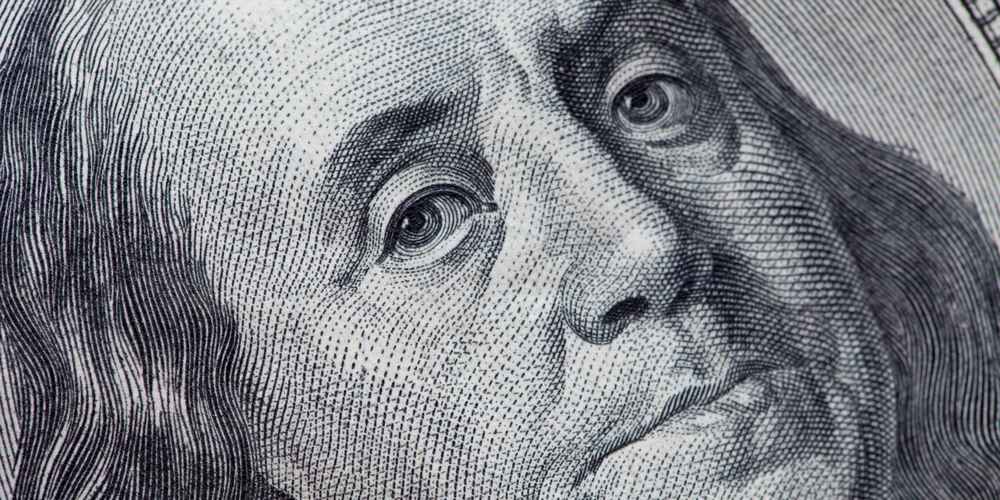
.jpg)
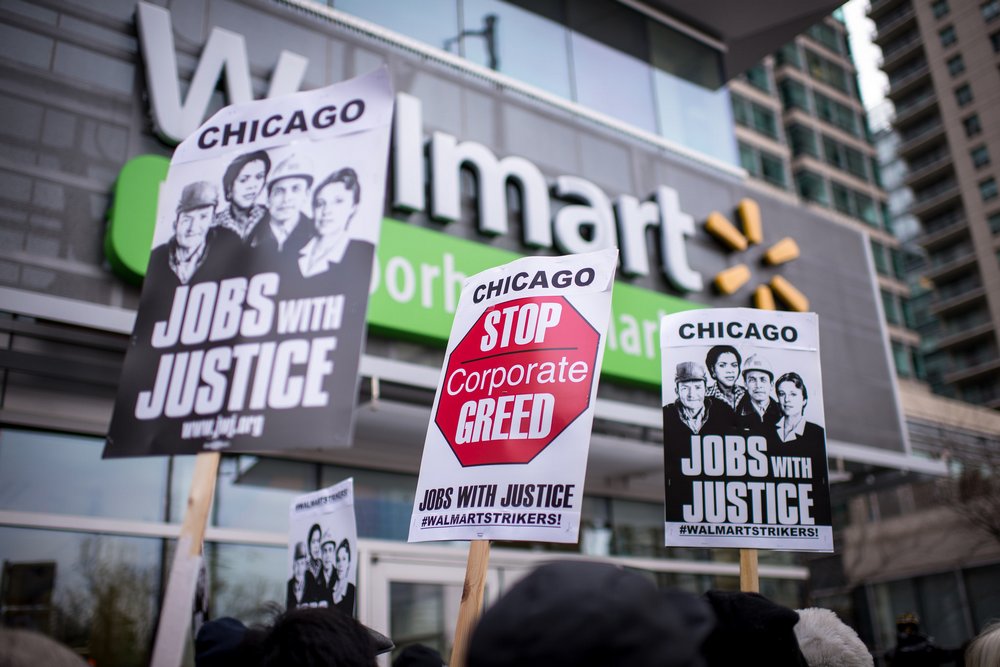
)
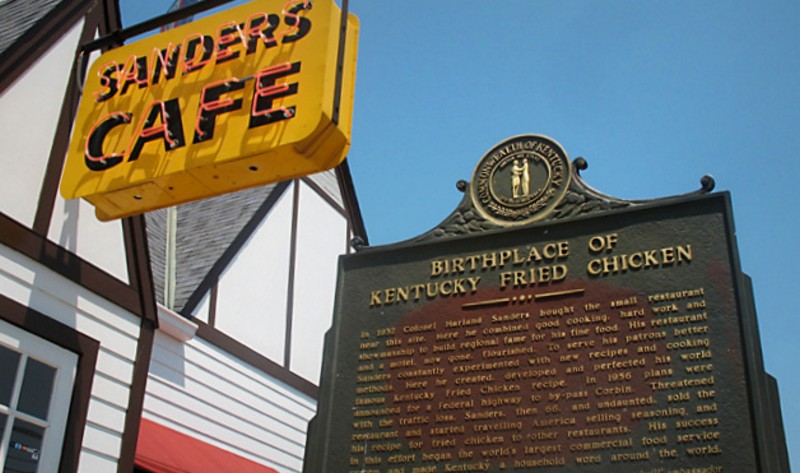
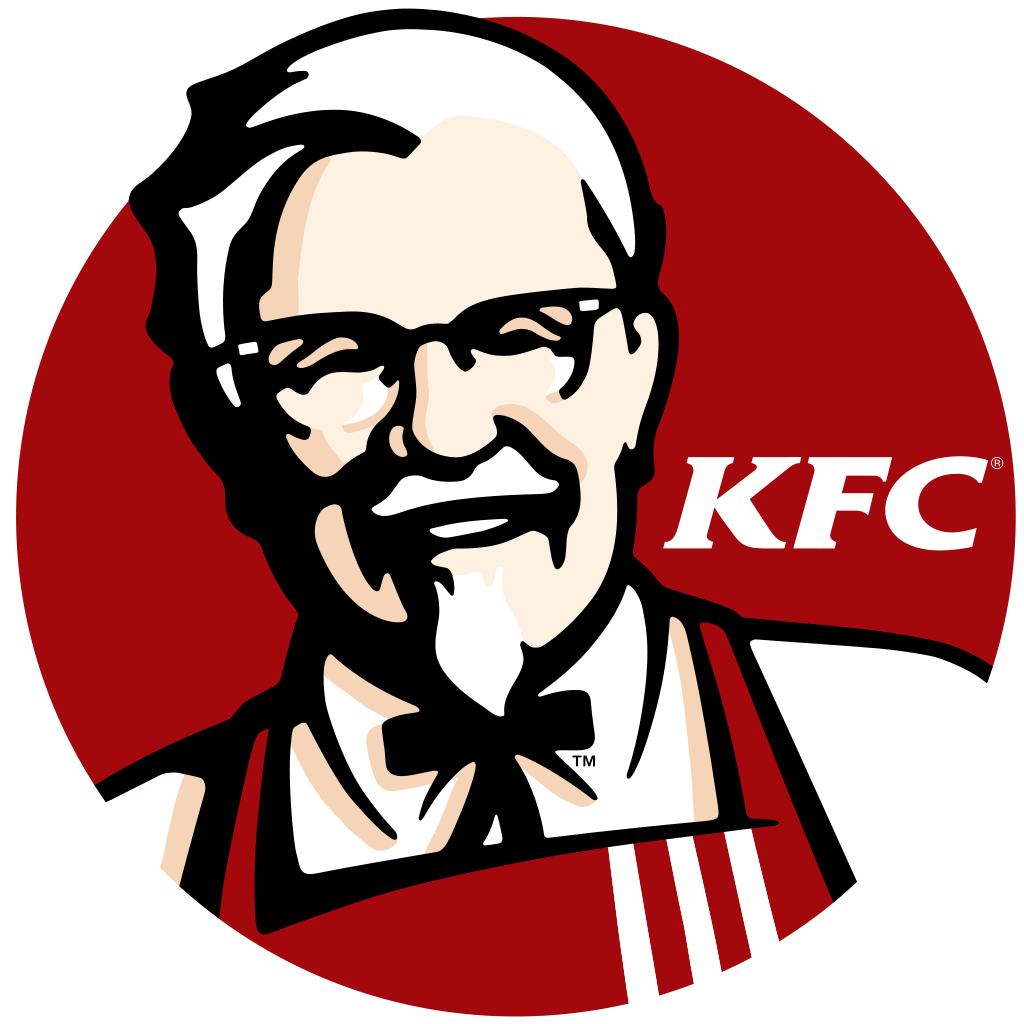
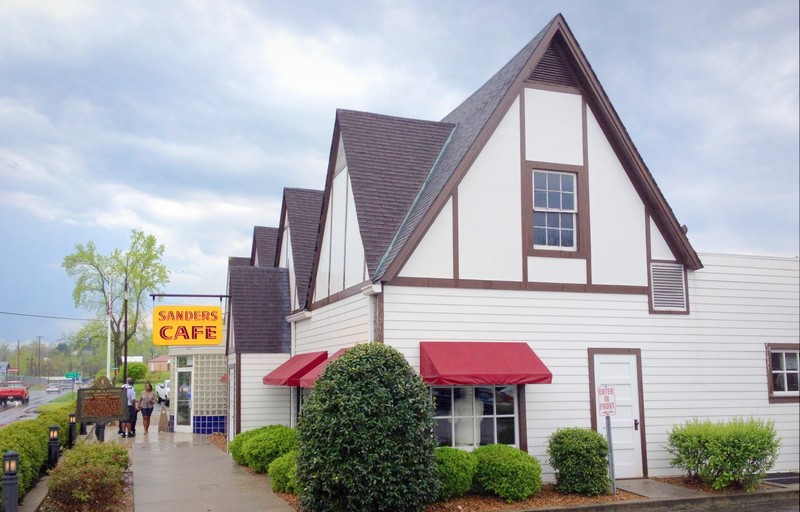
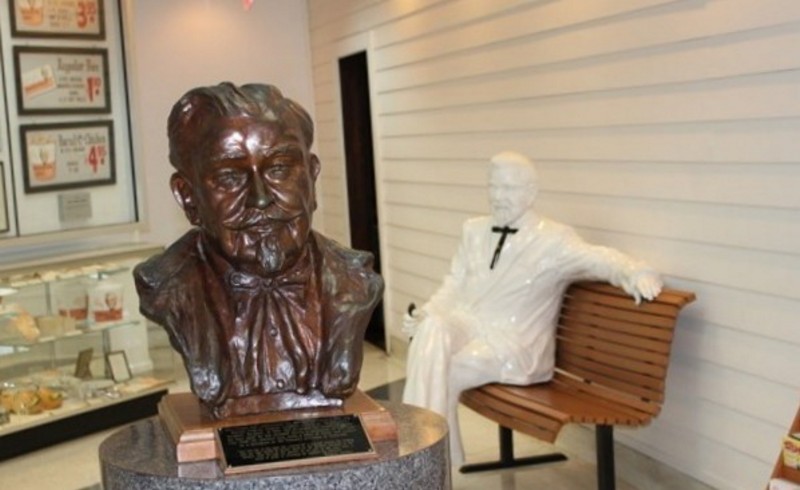
.jpg)
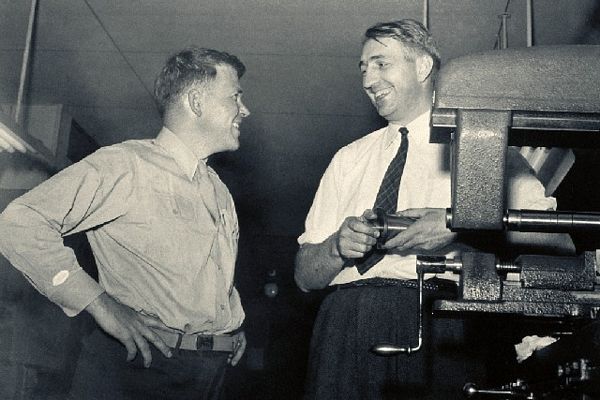
.jpg) “The best possible company management is one that combines a sense of corporate greatness and destiny, with empathy for, and fidelity to, the average employee.”
“The best possible company management is one that combines a sense of corporate greatness and destiny, with empathy for, and fidelity to, the average employee.”.jpg) “A frustrated employee is a greater threat than a merely unhappy one.”
“A frustrated employee is a greater threat than a merely unhappy one.”.jpg)
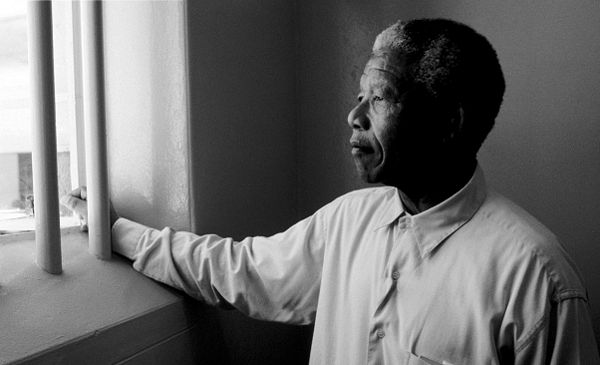
.jpg)